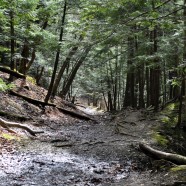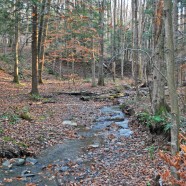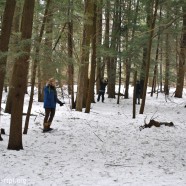Connecting with Our Forests
While old man winter seemed to have taken a break this past season, we certainly did not as there was much work to be done! As you likely saw, we spent much of this past winter season getting into the field to survey for Hemlock Woolly Adelgid (Adelges tsugae), an invasive insect threatening our local hemlock trees (Tsuga canandensis) and forests. Throughout the course of our field work and educational outreach programs, we not only had the opportunity to spread the word about this pest in attempts to slow the spread of it into our area, but also had the opportunity to learn a lot more about...
Read MoreHWA Survey Season
Once again it’s that time of year to brave the cold for conservation sake! That’s right, the season for surveying Eastern Hemlock trees (Tsuga canadensis) for the presence of Hemlock Woolly Adelgid (Adelges tsugae) has officially begun. Commonly referred to as HWA, Hemlock Woolly Adelgid is an aphid-like invasive insect that specifically attacks species within the Tsuga genus. Within the United States, four species of hemlock exist: Western and Mountain hemlock in the Pacific Northwest and Eastern and Carolina hemlock throughout the east. Each of these species are fair game for...
Read MoreWe Didn’t Find Anything…And That’s a Good Thing!
After two months of intensive winter survey work, we found nothing. However, that’s precisely the result we wanted. As you’ve probably seen or heard, this past winter we surveyed several sites throughout the area looking exclusively for Hemlock Woolly Adelgid (HWA), an invasive insect that puts all Eastern Hemlock trees (Tsuga canadensis), the habitats they make up and the wildlife they support at risk. This particular pest is minute, but can bring a tree to its death within a matter of 3-5 years if left unchecked and untreated. In response to this, several organizations, state...
Read More






